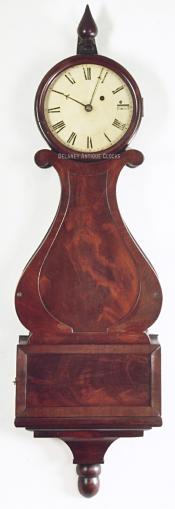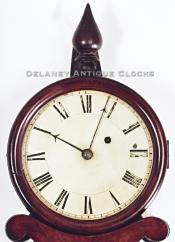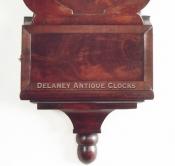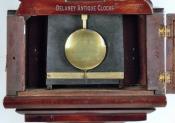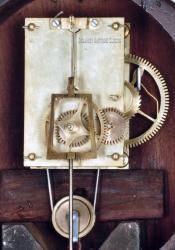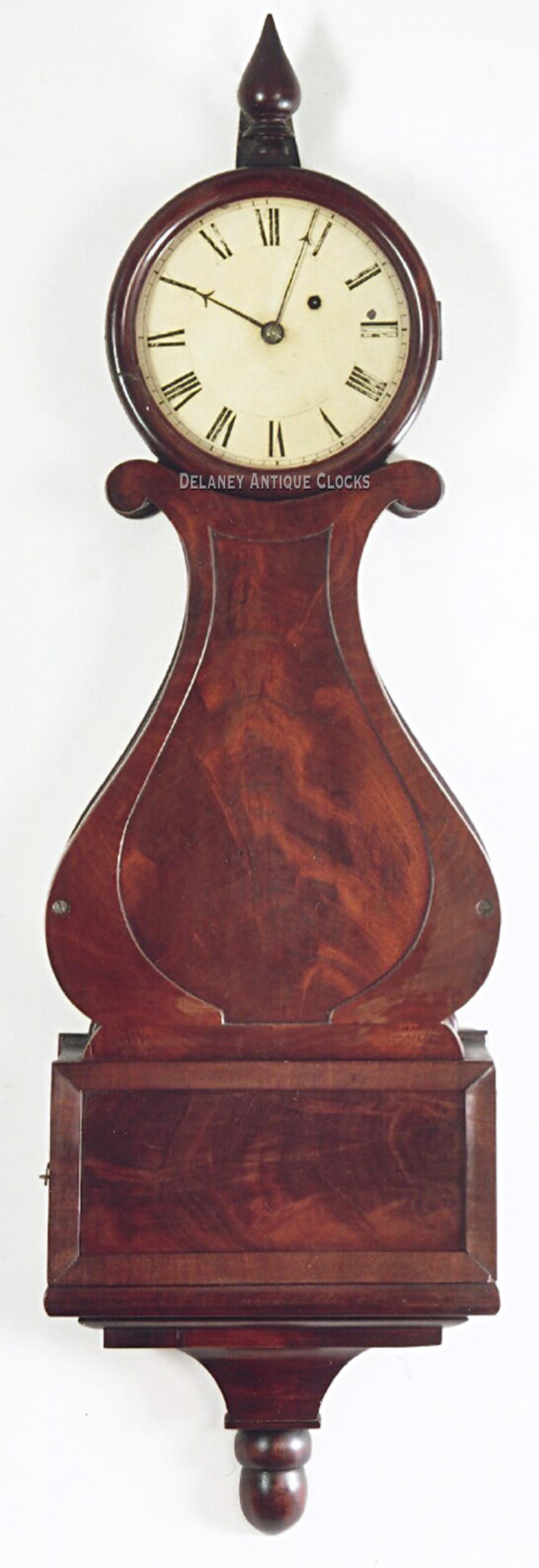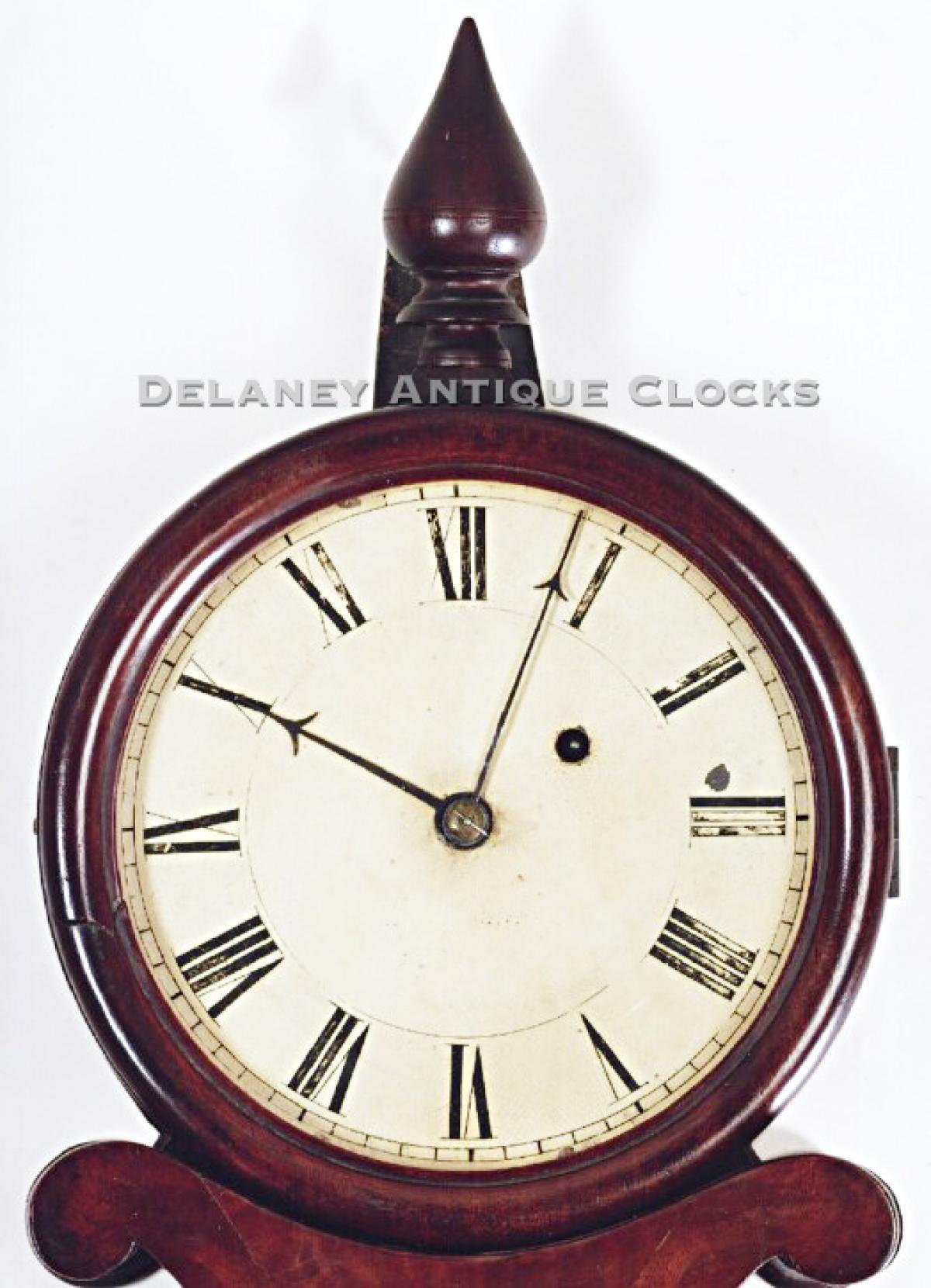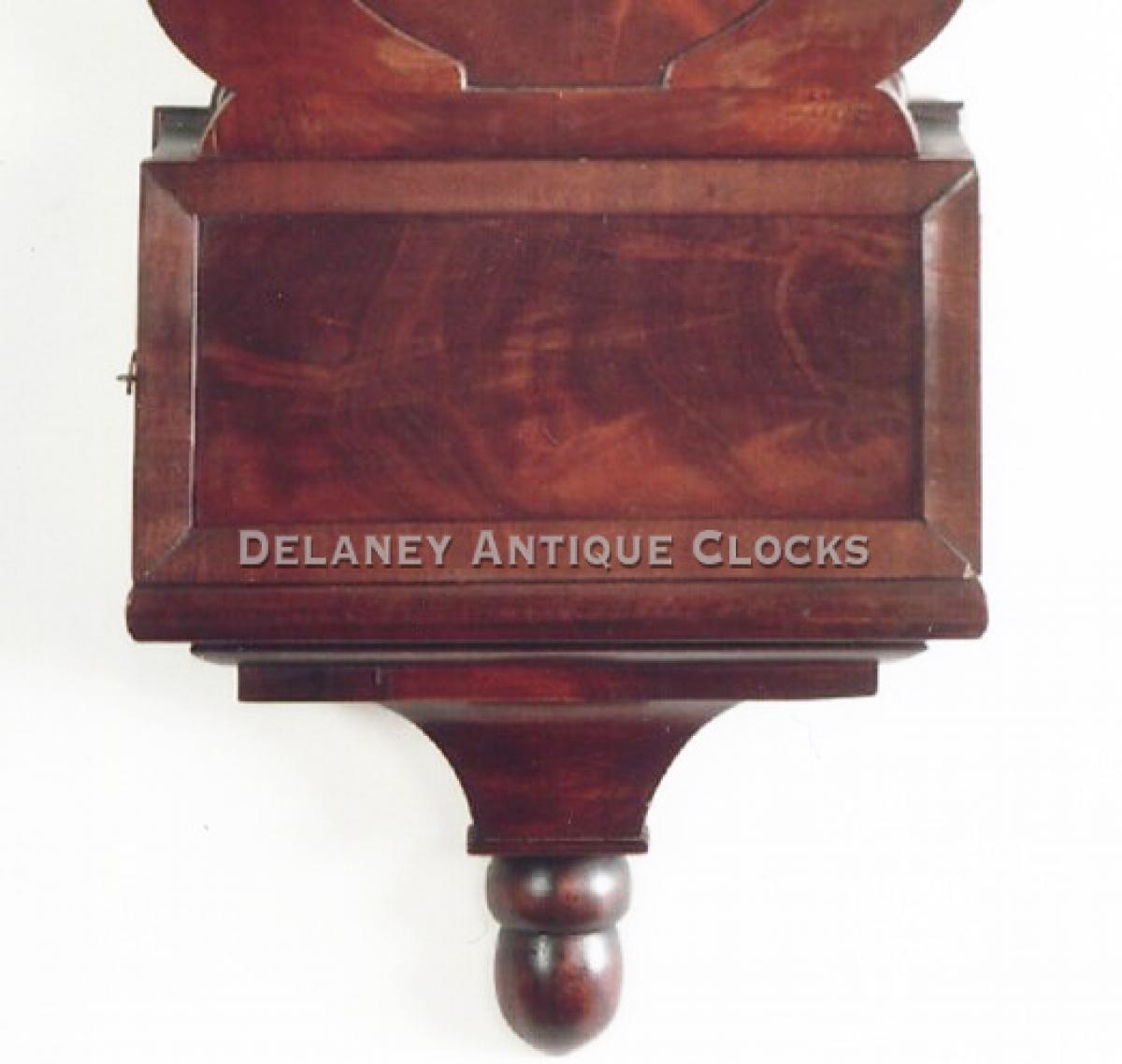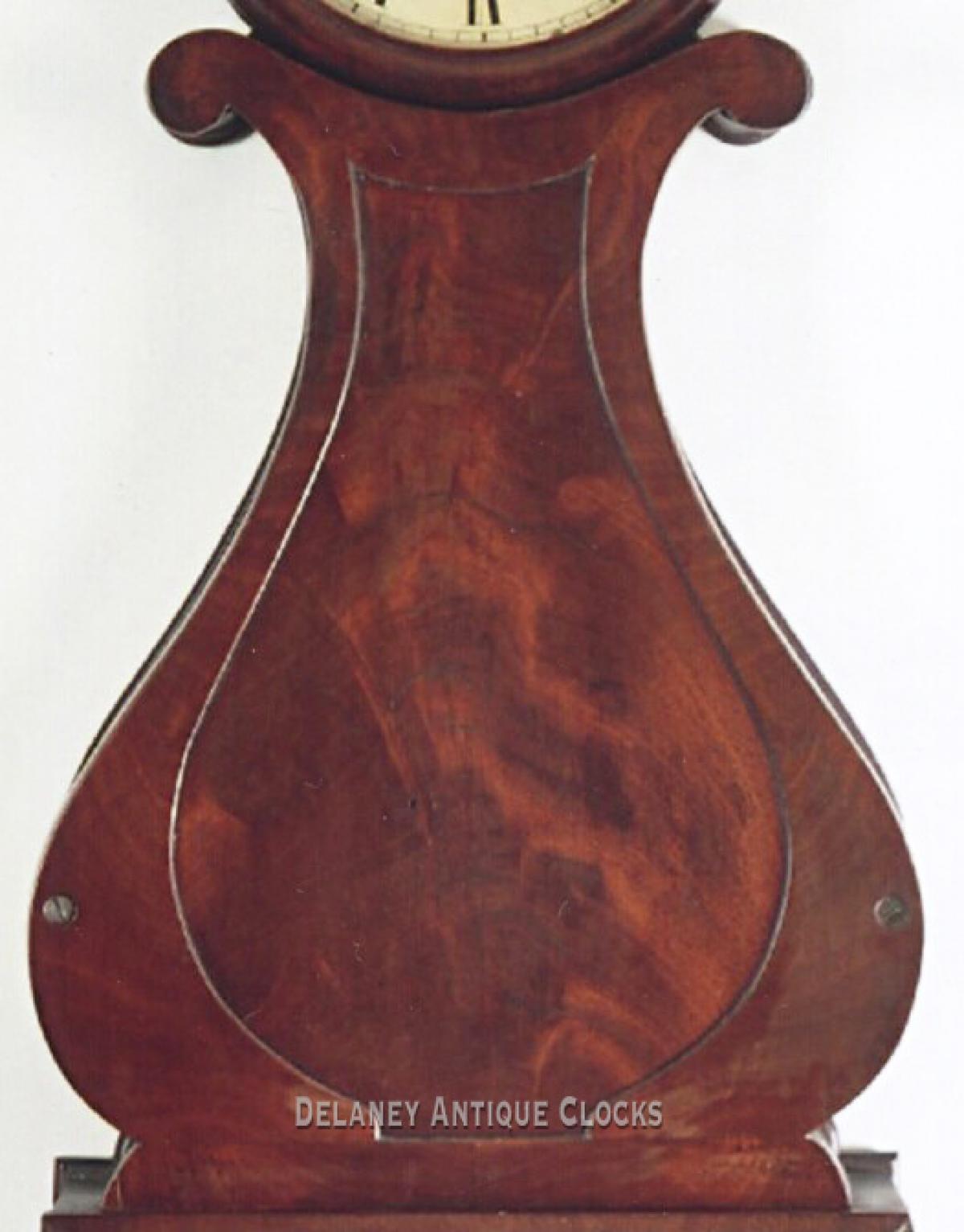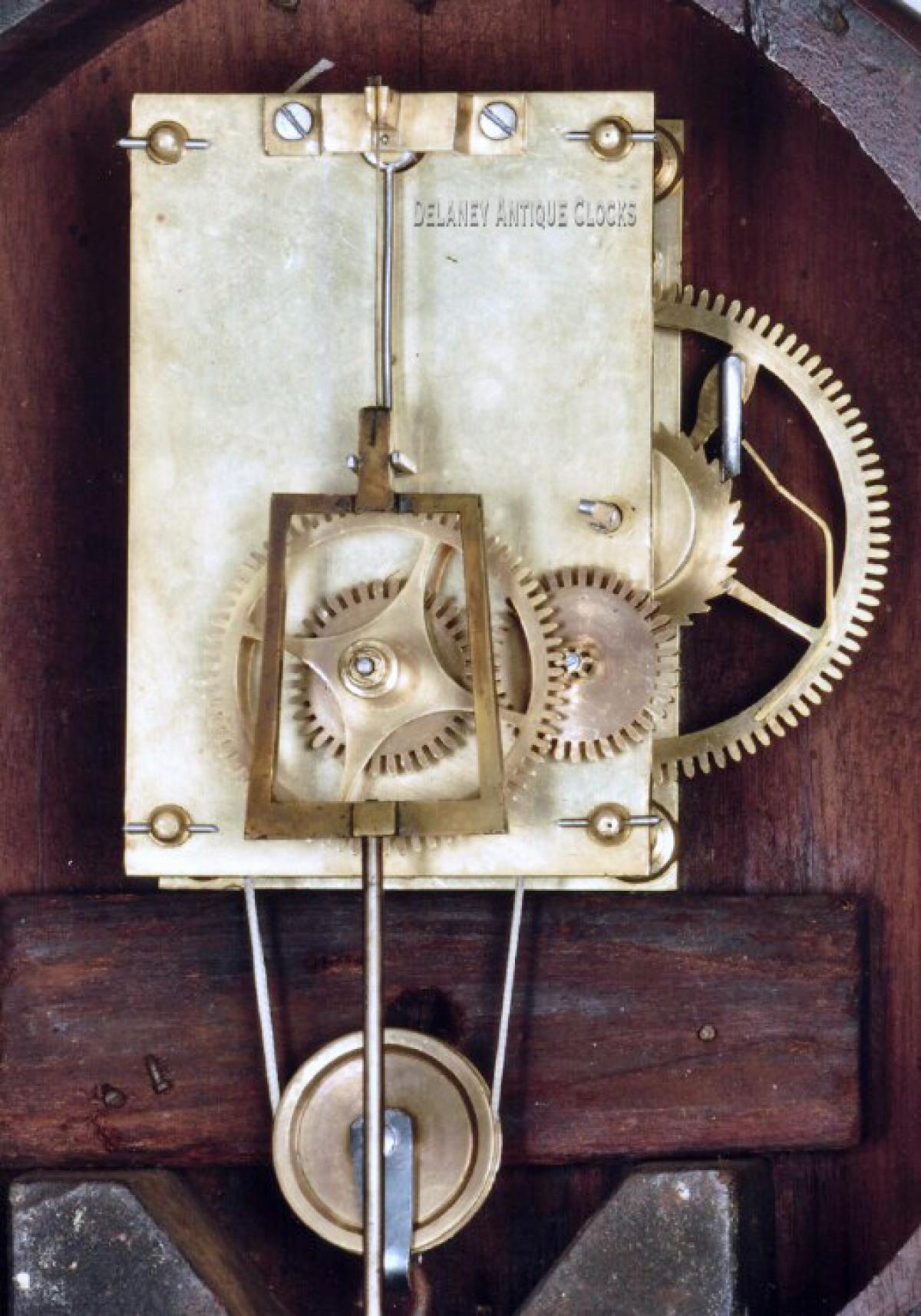Abiel Chandler Lyre Timepiece. Concord, New Hampshire origin. 25141.
Abiel Chandler was born in Concord, New Hampshire, on April 2, 1807. He was one of twelve children born to Major Timothy Chandler and his wife, Sarah Abbot. Abiel was the youngest son. Seven of Abiel’s brothers and sisters died very young, and three became insane. It is thought that Abiel and his brother Timothy were both trained by their Father to be clockmakers and are listed as working with him in the 1820s. In 1829, Abiel entered a partnership with his Father as “A. Chandler & Co.” It is also recorded that he traveled to Boston to learn how to make Willard’s Patent Timepieces. Abiel died in Concord on April 22, 1881. He is listed in the records as a clockmaker, silversmith, and a mathematical instrument maker. Several signed surveying instruments are have been recorded. We have owned and sold numerous examples of shelf clocks, New Hampshire mirror wall clocks, lyre, and patent timepieces signed by this Maker.
This is an exceptional example of a mahogany-cased lyre wall clock or timepiece made circa 1830. The form is excellent and exhibits long, narrow proportions. The case is constructed in richly figured mahogany, and New England white pine is used as a secondary wood. The mahogany retains an older finish that has developed a mellow patina that compliments the rich graining exhibited throughout the construction of the case.
A wooden finial is mounted onto a simply formed plinth at the top of the case. The turned wooden bezel features a half-round design incorporating a steeped interior edge. This interesting design is fitted with glass and opens to access the painted iron dial. This dial is signed by the Clockmaker in scriptwriting. This legitimate signature is now somewhat difficult to read. The time track is formatted with Roman-style hour numerals. The steel arrow-shaped hands display the time. The throat frame is unusual. The vast majority of the lyre clock form typically features carvings. This example does not and is formatted with a conservative flat molding. It is from the shape of this frame that this clock form gets its name. The shape is similar to that of a musical harp or lyre instrument. The wood selected for the interior of the frame features a wonderfully grained mahogany panel. This exuberant wood selection is also incorporated into the lower door. This door is fitted with canted frames. This door allows one access to the interior of the case where the brass-faced pendulum bob is located. Below this box is mounted a mahogany plinth or bracket, which terminates with an acorn drop finial.
The weight-driven movement is brass. It is designed to run for eight days on a full wind. The teeth in the gear train are deeply cut. It is mounted to the backboard with a single screw from the back of the case to the center of the back plate. This movement is a very good runner and is good quality. This clock measures approximately 40 inches long, 11 inches wide, and 4 inches deep.
Inventory number 25141.
Abiel Chandler was born in Concord, New Hampshire, on April 2, 1807. He was one of twelve children born to Major Timothy Chandler and his wife, Sarah Abbot. Abiel was the youngest son. Seven of Abiel's brothers and sisters died young, and three became insane. It is thought that Abiel and his brother Timothy were both trained by their Father to be clockmakers and are listed as working with him in the 1820s. In 1829, Abiel entered a partnership with his Father as "A. Chandler & Co." It is also recorded that he traveled to Boston to learn how to make Willard's Patent Timepieces. Abiel is also listed as working for several years as a mechanic for the Concord Railroad. On October 31, 1833, he married Marry L. Felt. They had five children. He moved from West Street to South Street, where he pursued gardening. He was a contributor to the agricultural department of the Monitor And Statesman for several years. Abiel died at his residence on South Street in Concord on April 22, 1881, at 9 o'clock in the morning.
He is listed in the records as a clockmaker, goldsmith, silversmith, and mathematical instrument maker. Several signed surveying instruments have been recorded. We have owned and sold numerous examples of shelf clocks, New Hampshire mirror wall clocks, lyre, and patent timepieces signed by this Maker.

